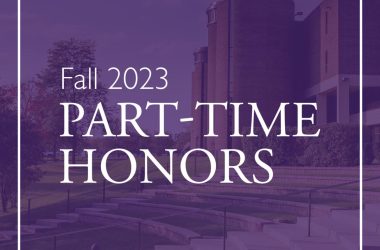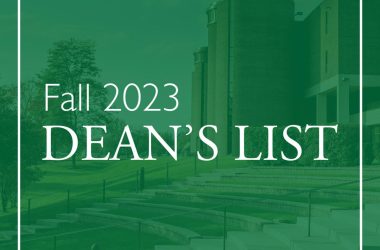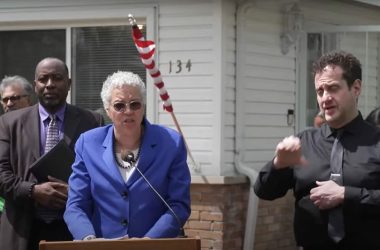Discusses Commitment to Increasing Homeownership Opportunities, Helping Working Families Stay in their Homes and Stabilizing Communities
CHICAGO–(ENEWSPF)–April 24, 2013. Governor Pat Quinn today addressed the annual Illinois Governor’s Conference on Affordable Housing, where he discussed his commitment to increasing homeownership opportunities, helping working families stay in their homes and stabilizing communities. The governor also thanked public-private housing leaders for partnering with the state of Illinois to create and preserve affordable housing opportunities across Illinois.
“Homeowners are the foundation of thriving neighborhoods that strengthen our state,” Governor Quinn said. “Being able to access affordable, safe, quality homes and rentals is important to the stability of our communities and spurs job creation. By working together with our dedicated federal, local and private partners, we will drive our economy forward by creating and sustaining affordable housing across Illinois.”
Under the governor’s leadership, the Illinois Housing Development Authority (IHDA) sponsored the event in collaboration with the Illinois Housing Council, a statewide organization focused on affordable housing. The two-day event at the UIC Forum drew approximately 600 attendees dedicated to ensuring access to safe and decent housing for Illinois’ working families, Veterans, seniors and people with disabilities.
“Our members are proud to partner with IHDA to build and rehab homes and apartments across the state,” Andrea Traudt, Executive Director of the Illinois Housing Council said. “Constructing and preserving affordable housing creates jobs, generates new tax base, makes our towns and cities more livable, and brings dignity to the elderly and disabled, hope to the homeless, and opportunity to our fellow citizens who work hard every day for a modest wage. The sharing of best practices and current resources through this event helps our members to continue their work to create and preserve affordable housing throughout Illinois.”
Today, the event featured a timely national discussion on the Washington, D.C.-based Bipartisan Policy Center (BPC) Housing Commission’s landmark report on some of the nation’s most urgent housing issues. Issued in February, the report followed a 16-month examination of key housing issues and presented a blueprint for housing finance reforms. Former U.S. Senator and Senate Majority Leader George J. Mitchell, who co-chairs the BPC Housing Commission, led the discussion with BPC Commissioners Robert M. Rozen and Ed Brady.
Ed Hinsberger, retiring Director of Multifamily Housing at the U.S. Department of Housing and Urban Development (HUD) Chicago office, received recognition for his longstanding commitment to affordable housing. Michael A. Stegman, Counselor to the Secretary of the Treasury for Housing Finance Policy, also addressed Illinois’ housing leaders.
In addition, the conference featured workshops highlighting the state’s dedication to affordable housing, including foreclosure prevention, community revitalization, community-based supportive housing to end homelessness and Veterans housing.
Representatives of IHDA, the Illinois Department of Human Services (DHS), the Illinois Department of Commerce and Economic Opportunity (DCEO), the Illinois Department of Healthcare and Family Services (HFS), the Illinois Department on Aging and the Illinois Department of Corrections participated in the event.
“Governor Quinn understands home is the foundation of our communities, and his strong track record of supporting important legislation and housing initiatives has made a critical impact in the lives of so many low- to moderate-income families and individuals,” IHDA Executive Director Mary R. Kenney said. “These are people whose quality of life has increased because they were able to buy a home or move into a quality apartment in the community of their choice.”
Governor Quinn’s leadership on affordable housing includes:
- Creating the Illinois Foreclosure Prevention Network (IFPN): A one-stop comprehensive, free resource to connect struggling homeowners to the assistance that will keep them in their homes. This is a multi-agency effort providing trustworthy services and knowledge, as well as financial mortgage assistance of up to $35,000 from the Illinois Hardest Hit program. An estimated 600,000 homeowners have accessed information through the Network’s website, www.keepyourhomeillinois.org.
- Proclaiming 2013 as the “Year of Homeownership” – including the launch of four new safe and affordable mortgage programs over the last 18 months. Under the Welcome Home Heroes program, Veterans have accessed over $98 million in financing to purchase 833 units across the state since the program began in December 2011. IHDA’s mortgages have lower credit score requirements, provide cash for down payment assistance and require homeownership counseling.
- Implementing a “Rebalancing Initiative” to ensure all people have the opportunity to follow their dreams and reach their full potential. Under Governor Quinn’s administration, approximately 1,800 community-based supportive housing units have been financed across Illinois. In 2012, 20 percent of the multifamily units, or one in five, that IHDA financed were supportive housing.
- Tripling the number of communities offering the Illinois Building Blocks program, a holistic strategy to address the foreclosure and vacancy issue in targeted communities. Buyers of vacant homes in the following 15 communities can qualify for a fixed-rate 30-year loan and $10,000 in down payment: Belleville, Berwyn, Blue Island, Champaign, Chicago Heights, Cicero, Crest Hill, Joliet, Lockport, Lynwood, Maywood, Melrose Park, Park Forest, Peoria and South Holland.
- Targeting capital funding for affordable housing – $130 million in Illinois Jobs Now! – marking the first time this state funding source has been dedicated to housing.
- Signing Senate Bill 16 in February to fast track the foreclosure process for vacant properties. Effective June 1, the bill allows a foreclosure trial to immediately proceed after a judge certifies that a property is abandoned. This new law significantly reduces the foreclosure process to approximately 90-180 days from what now takes nearly two years.
Source: illinois.gov








